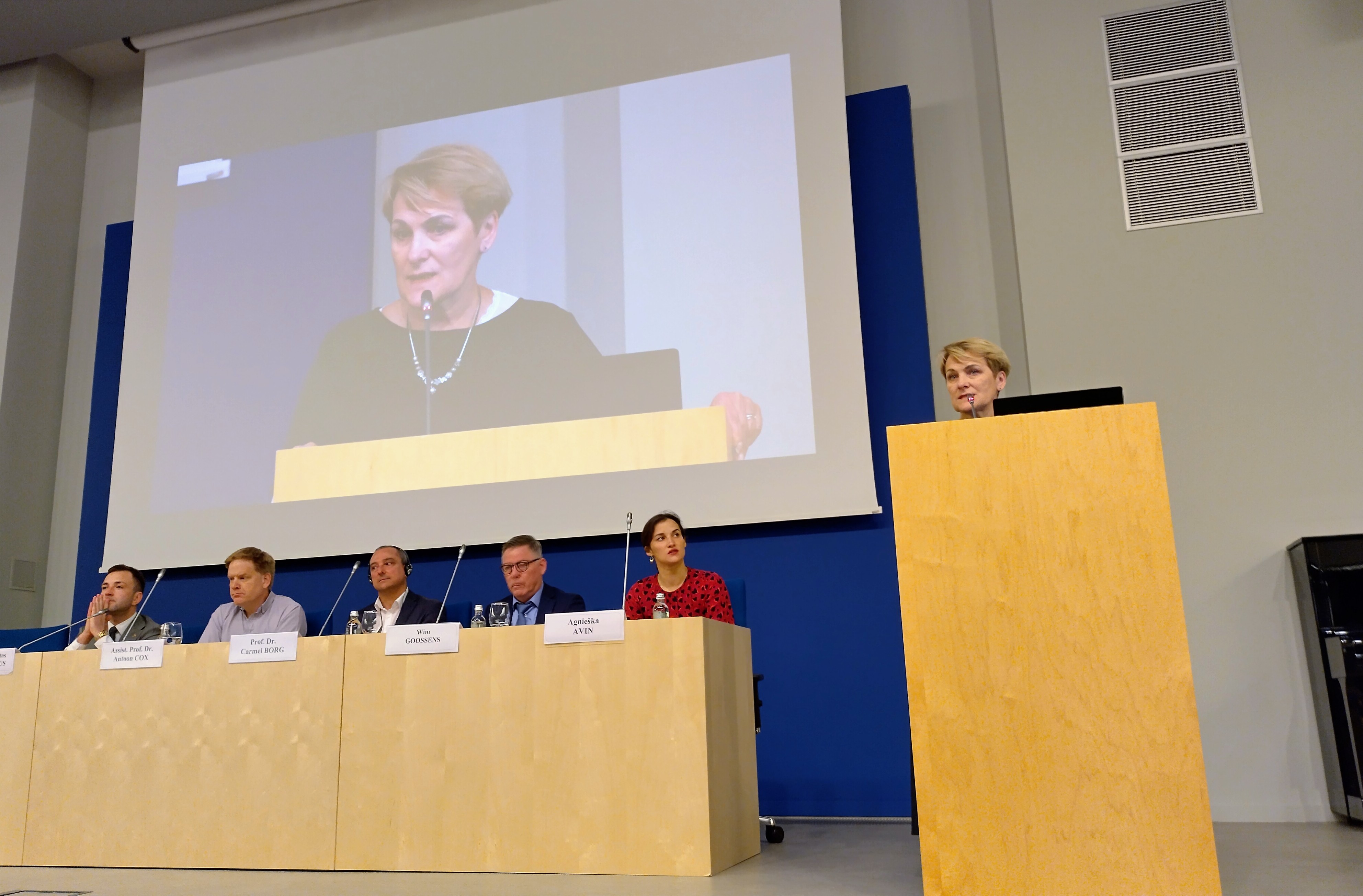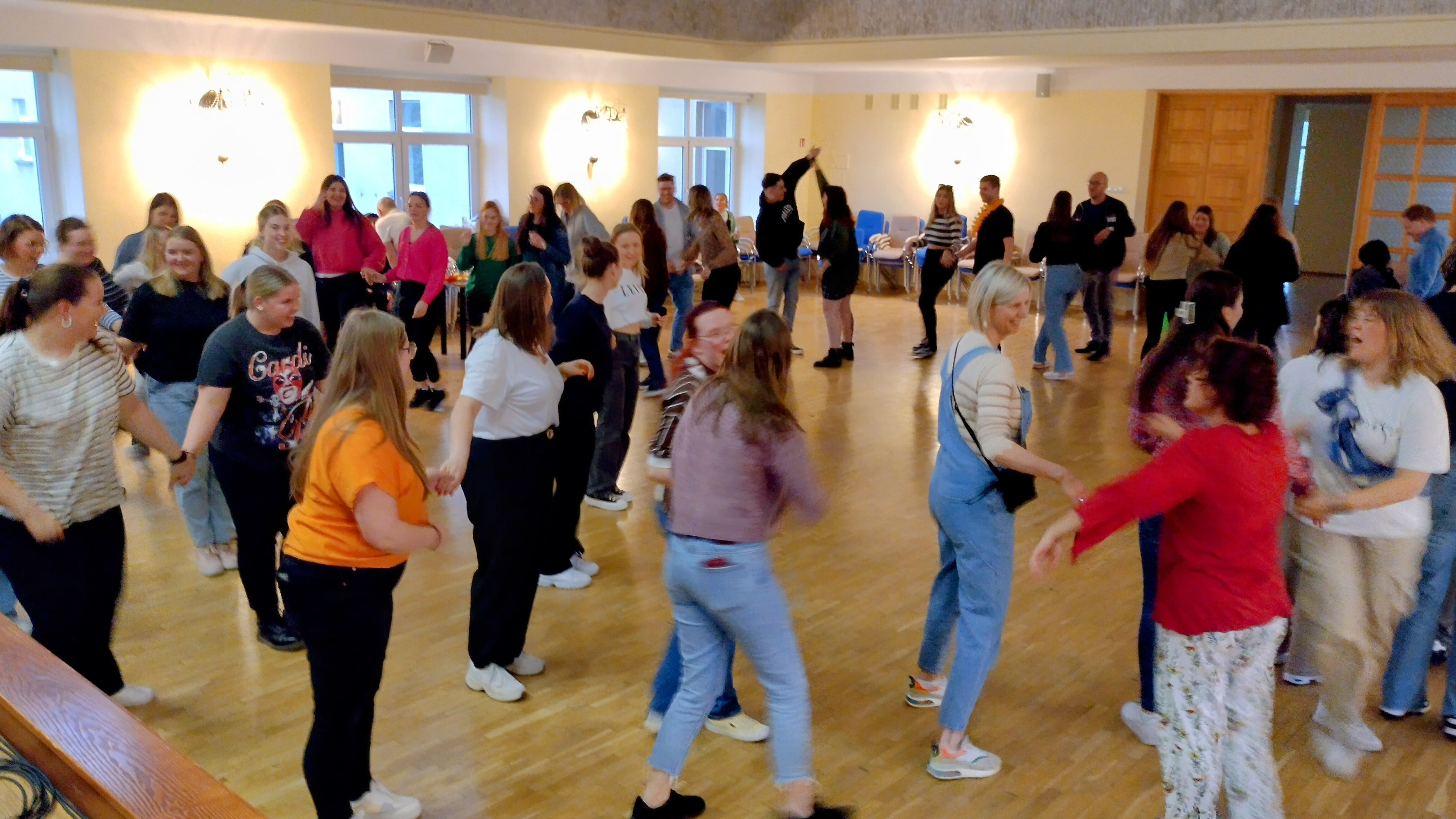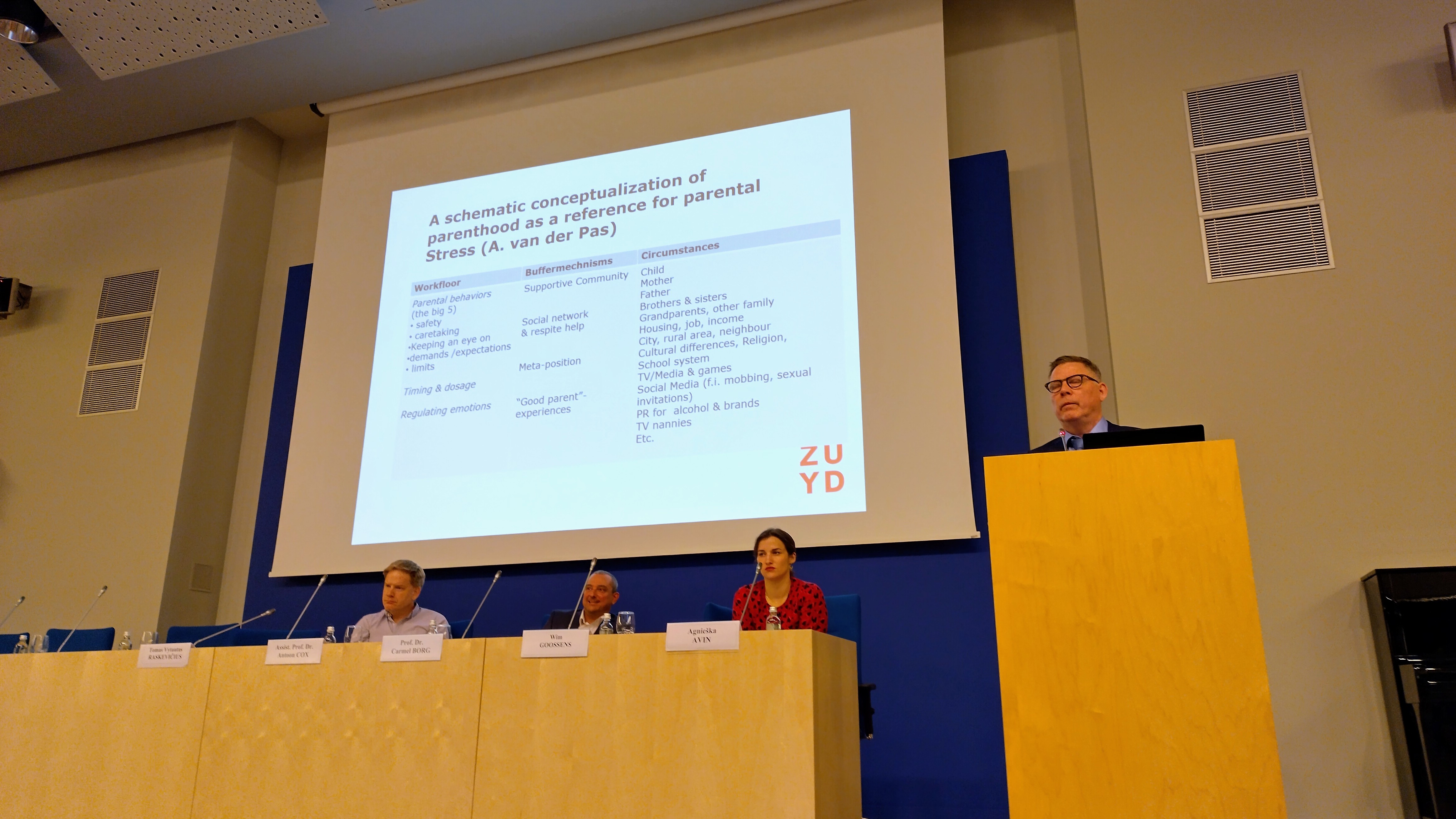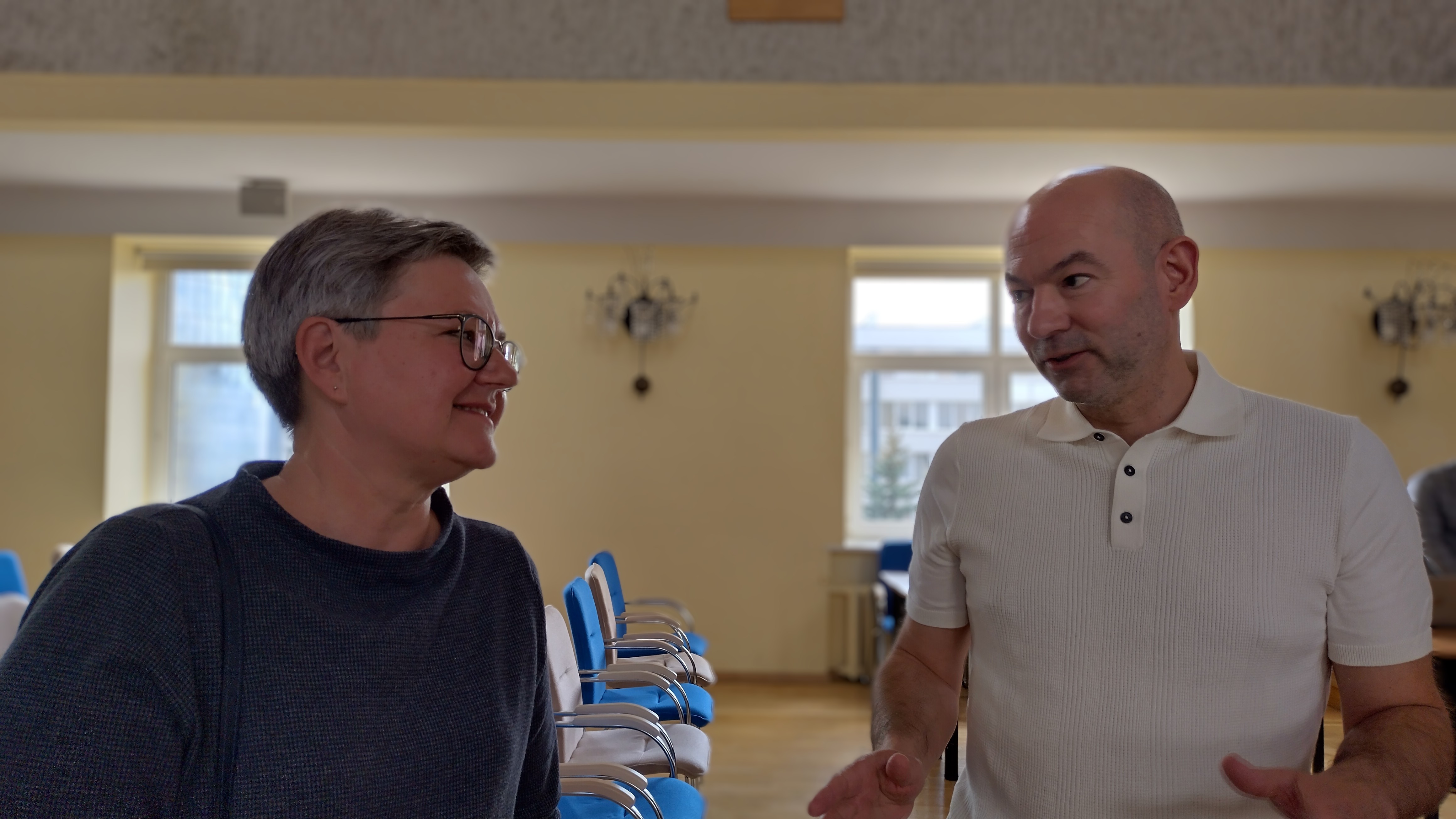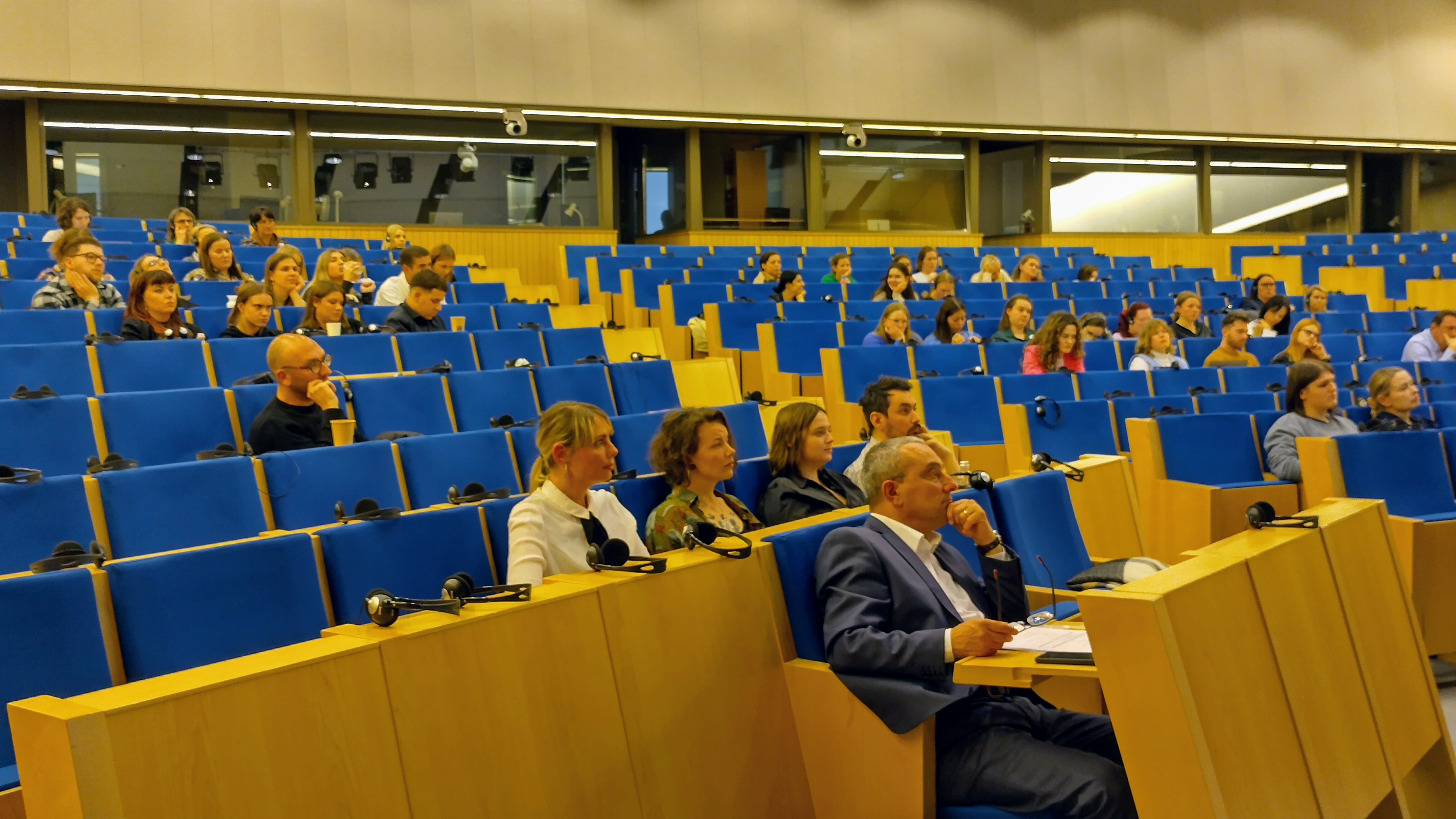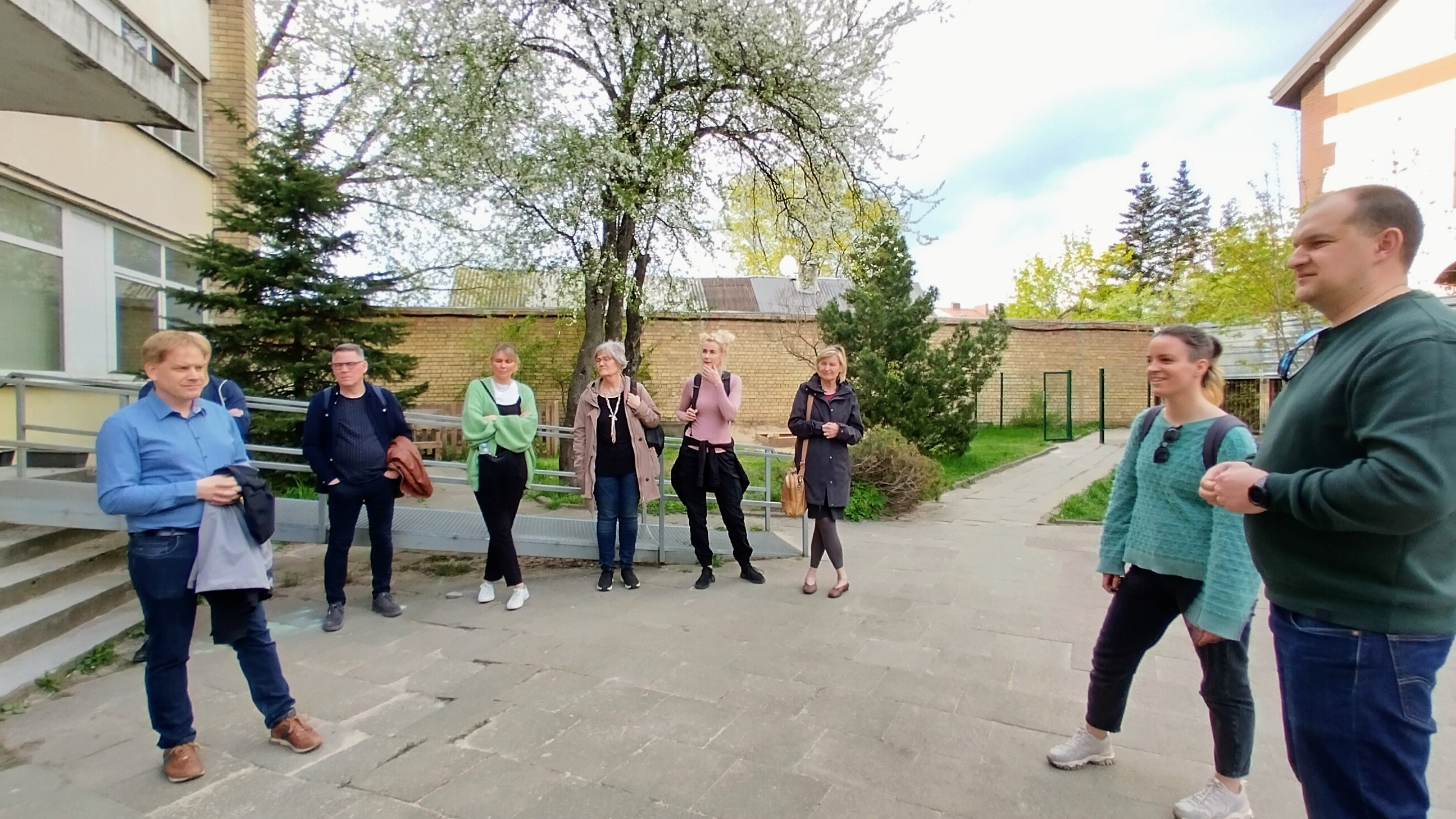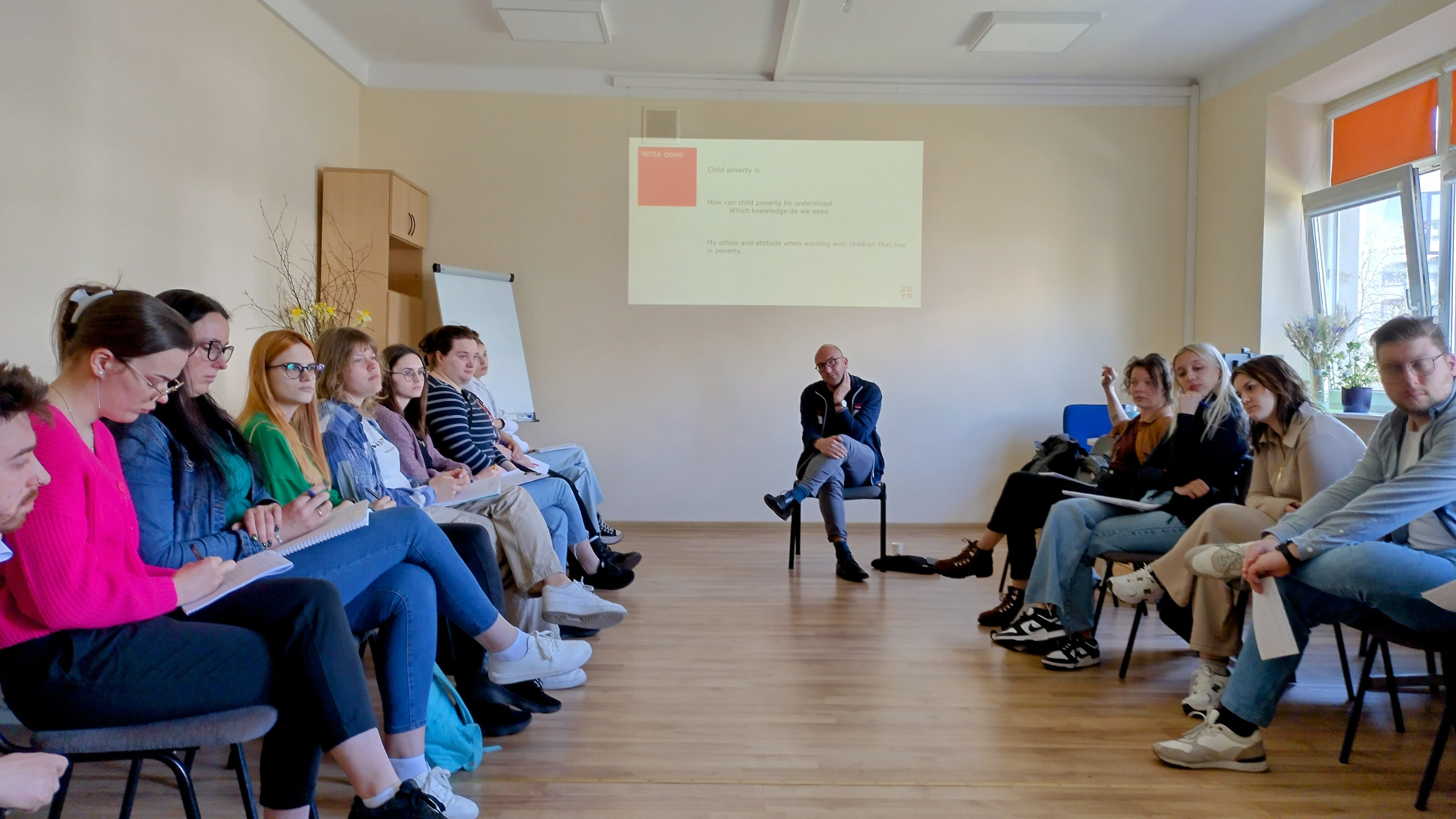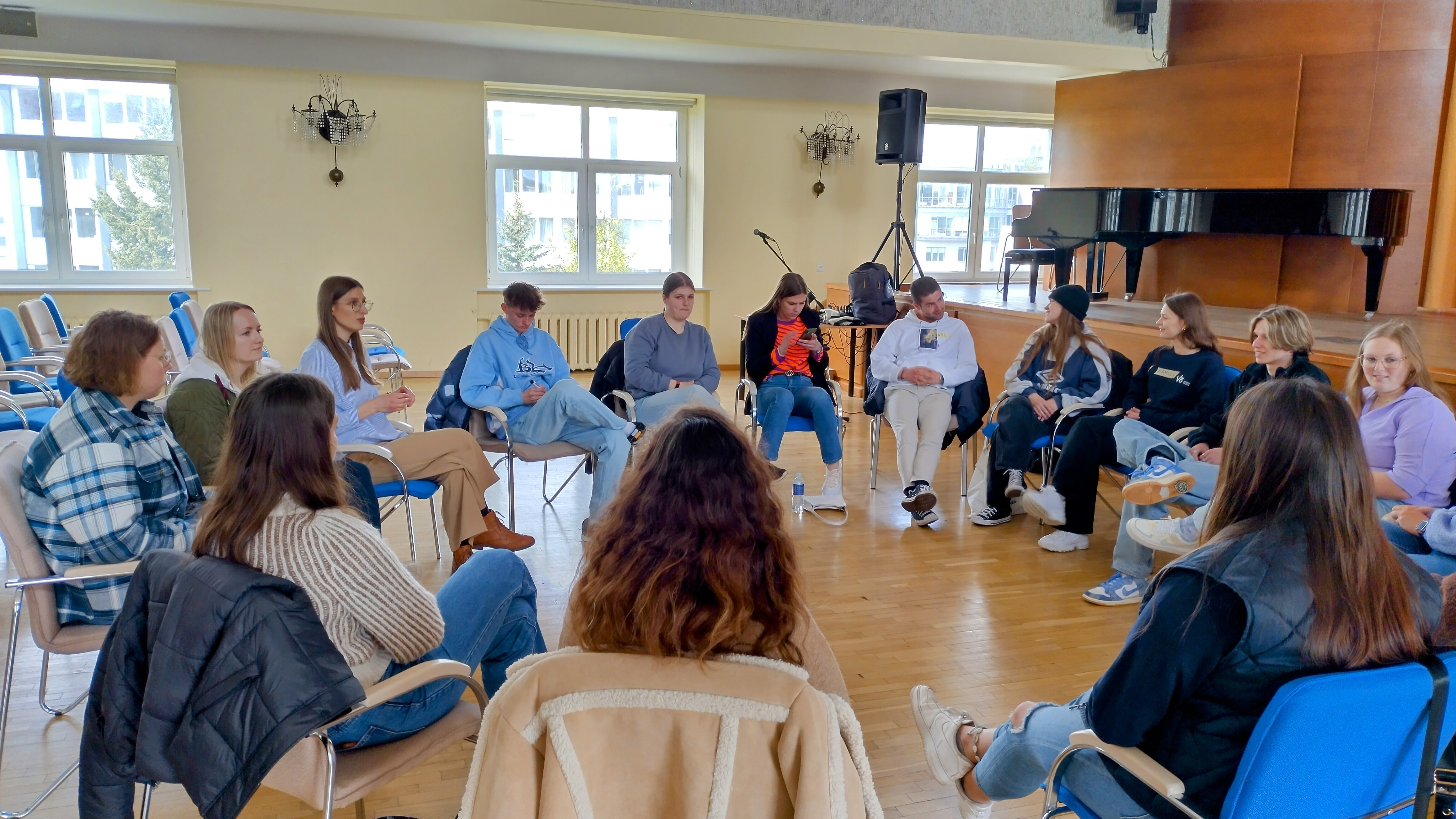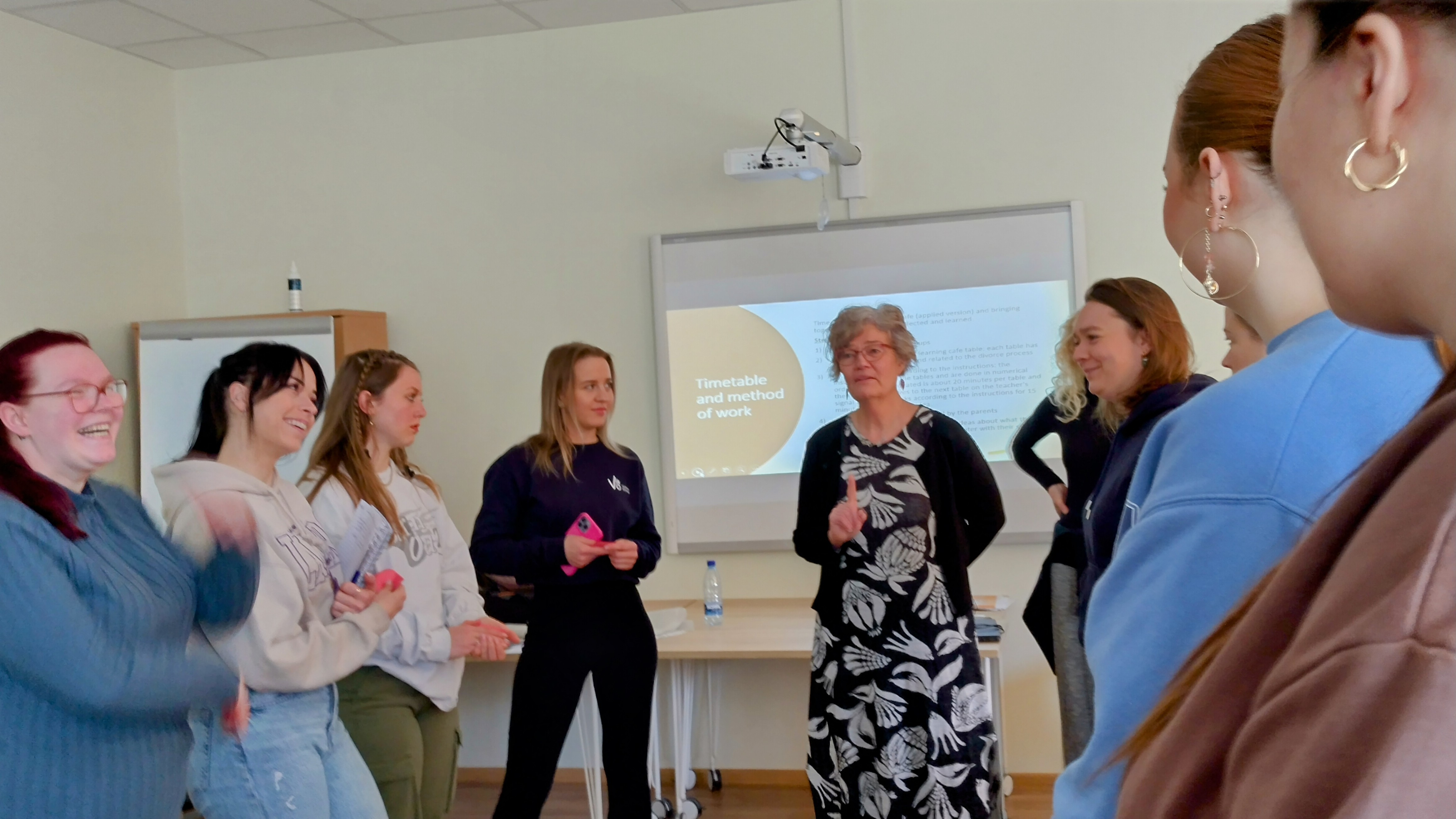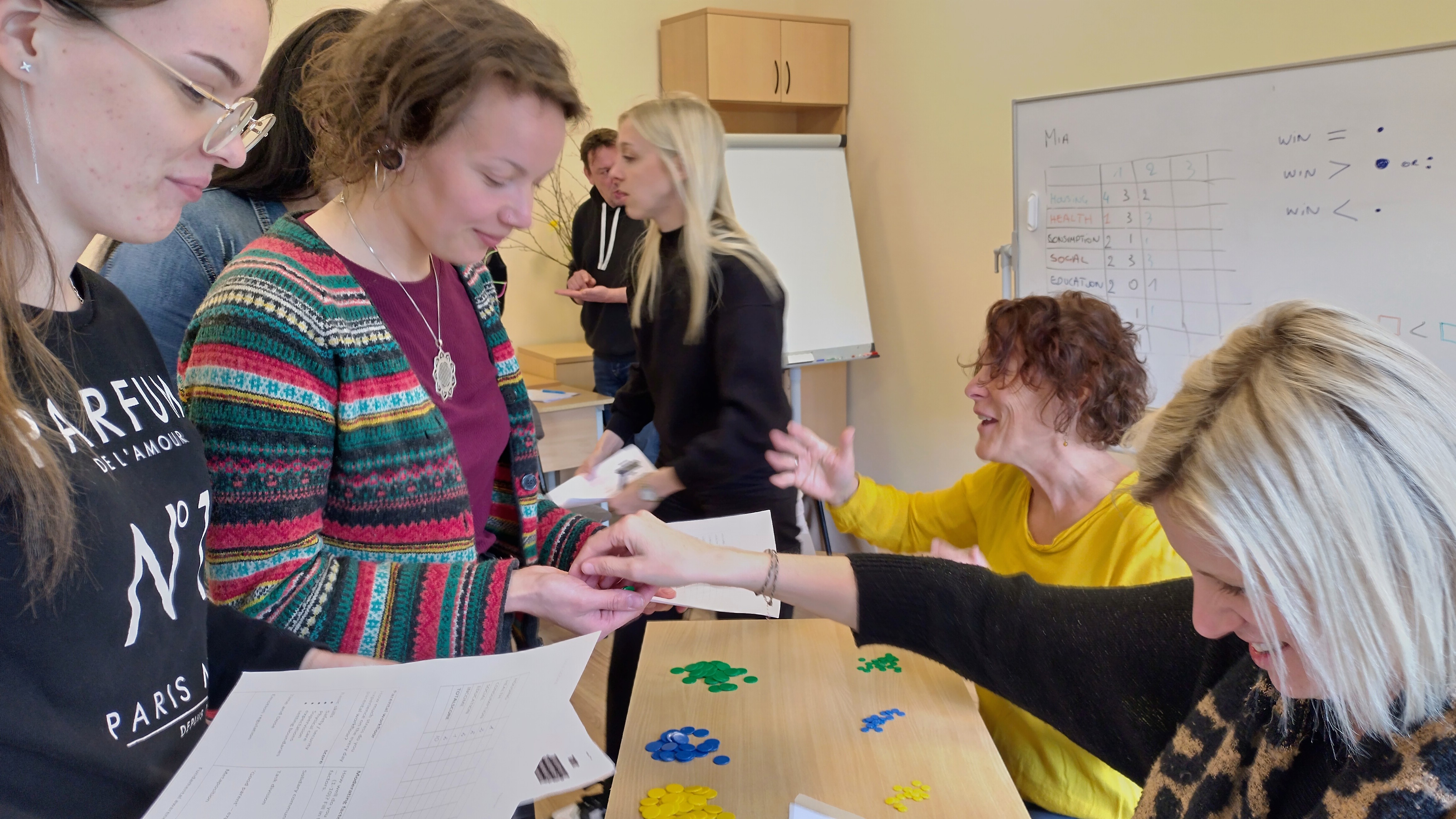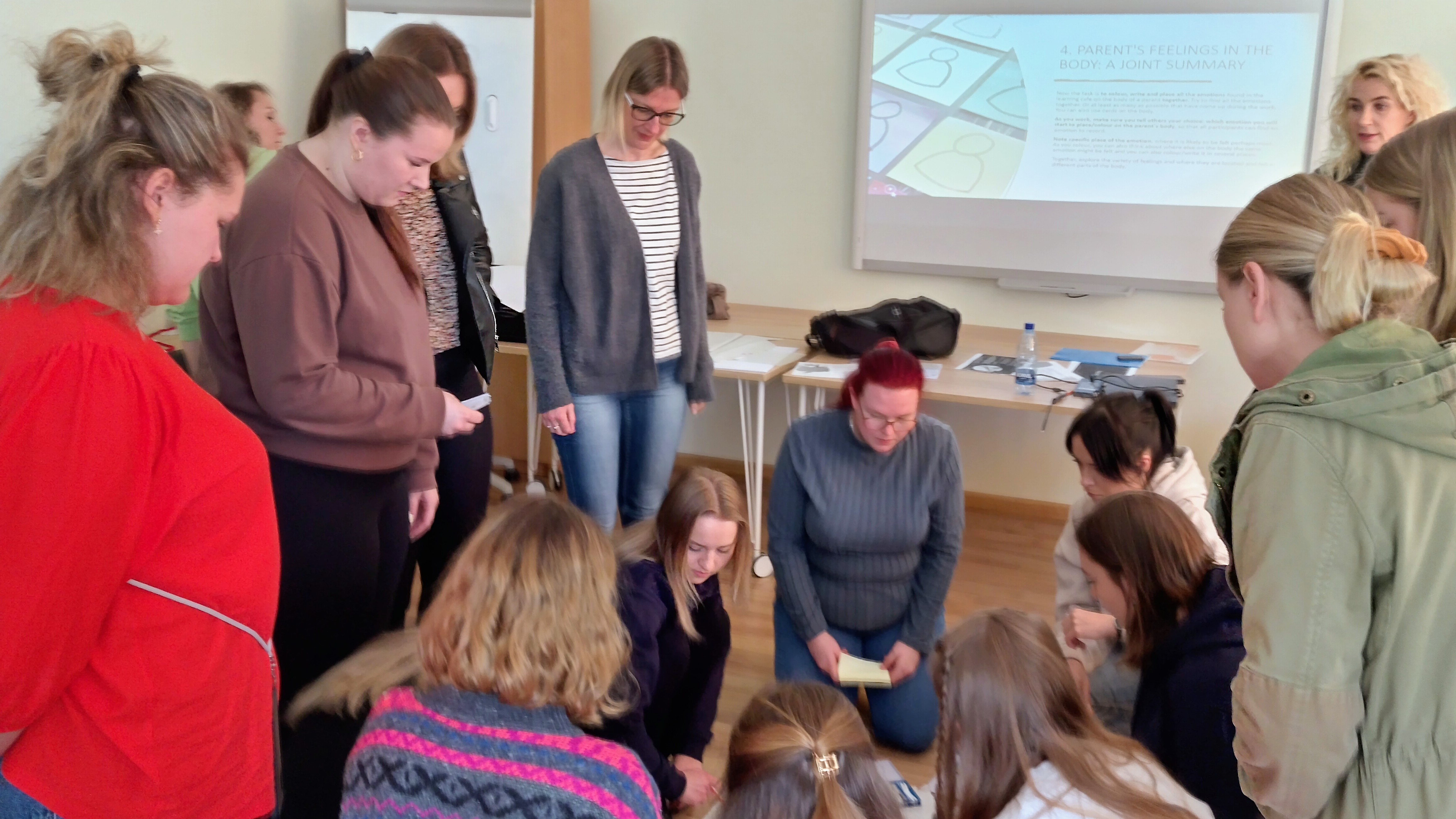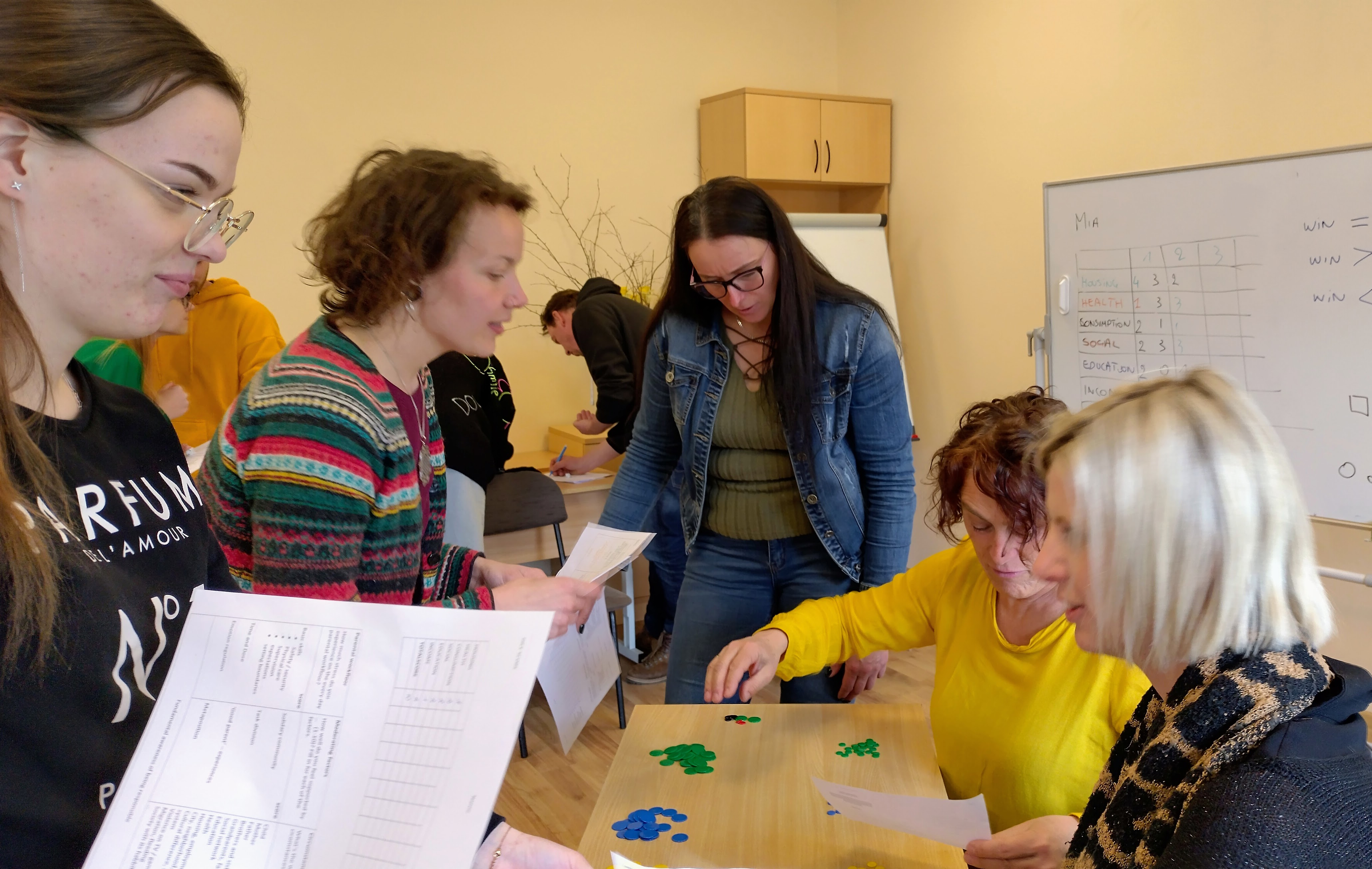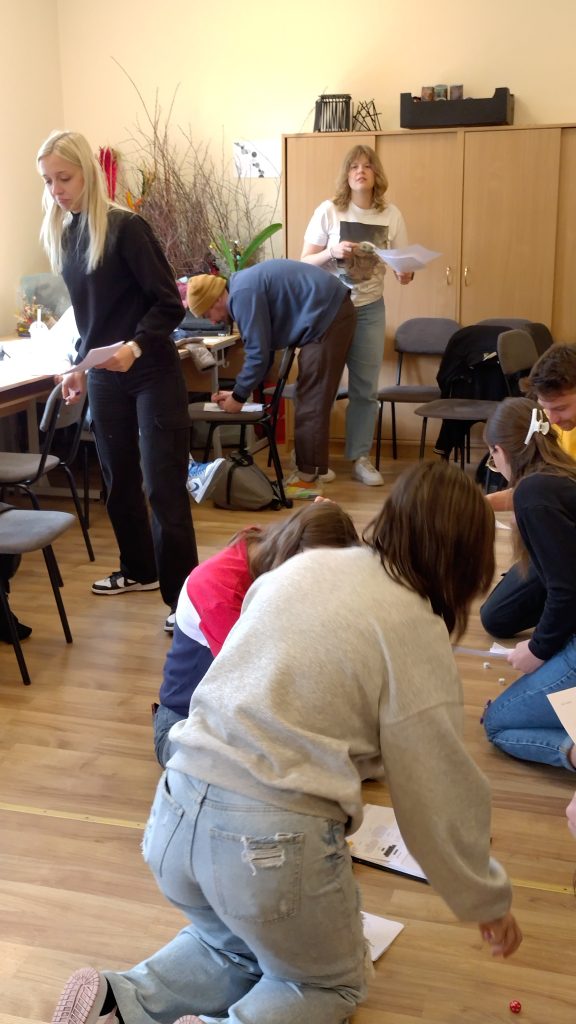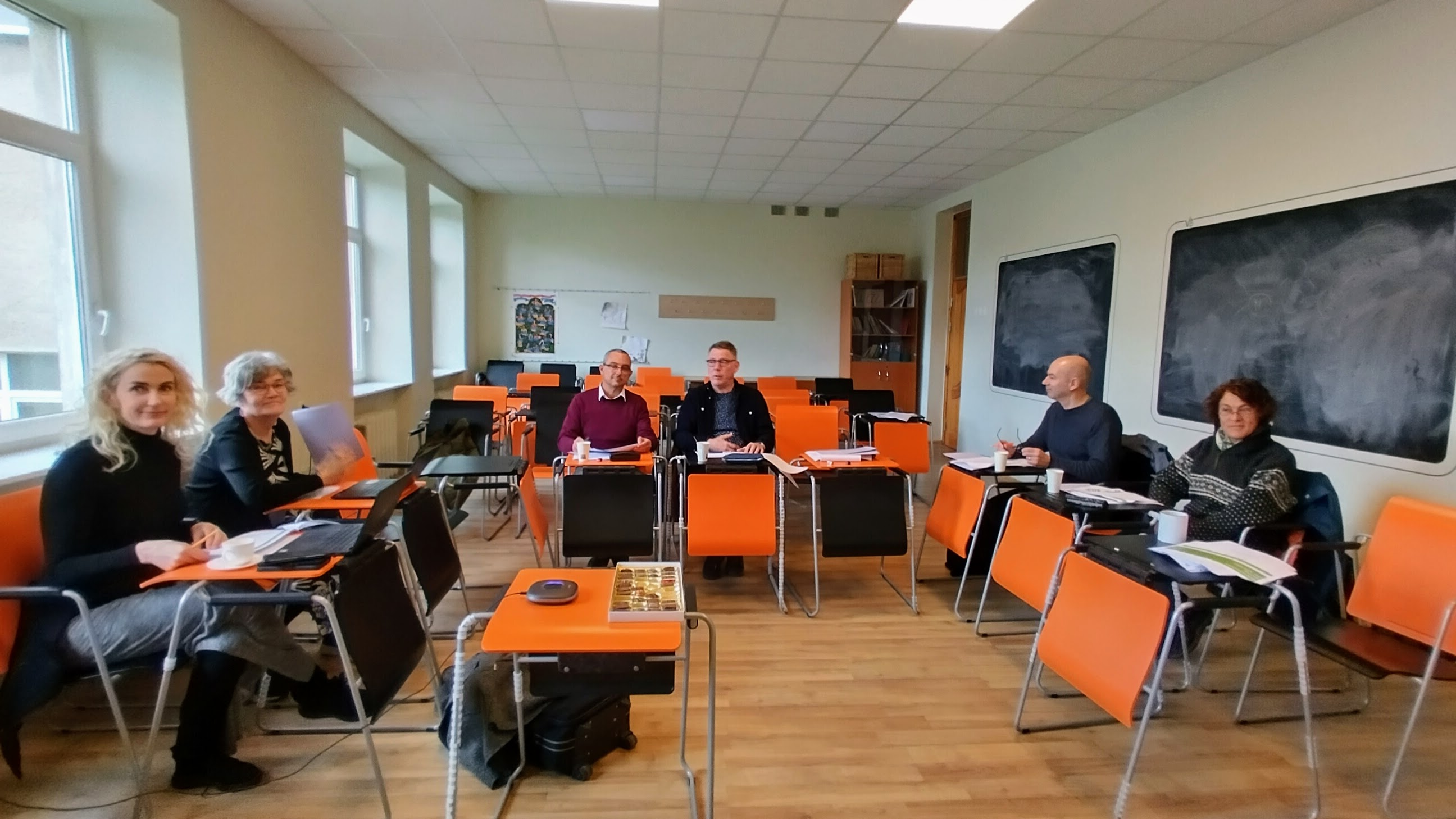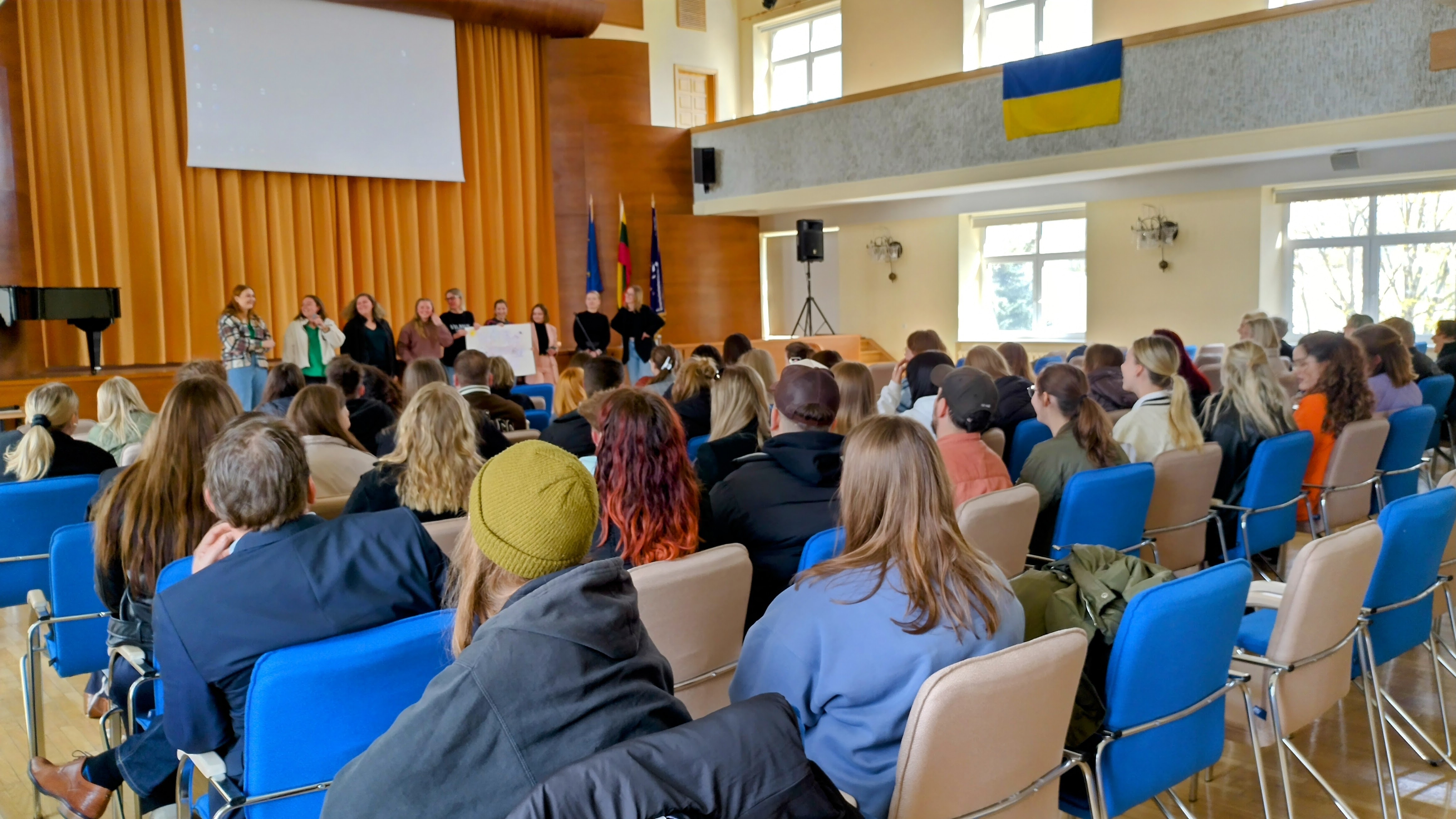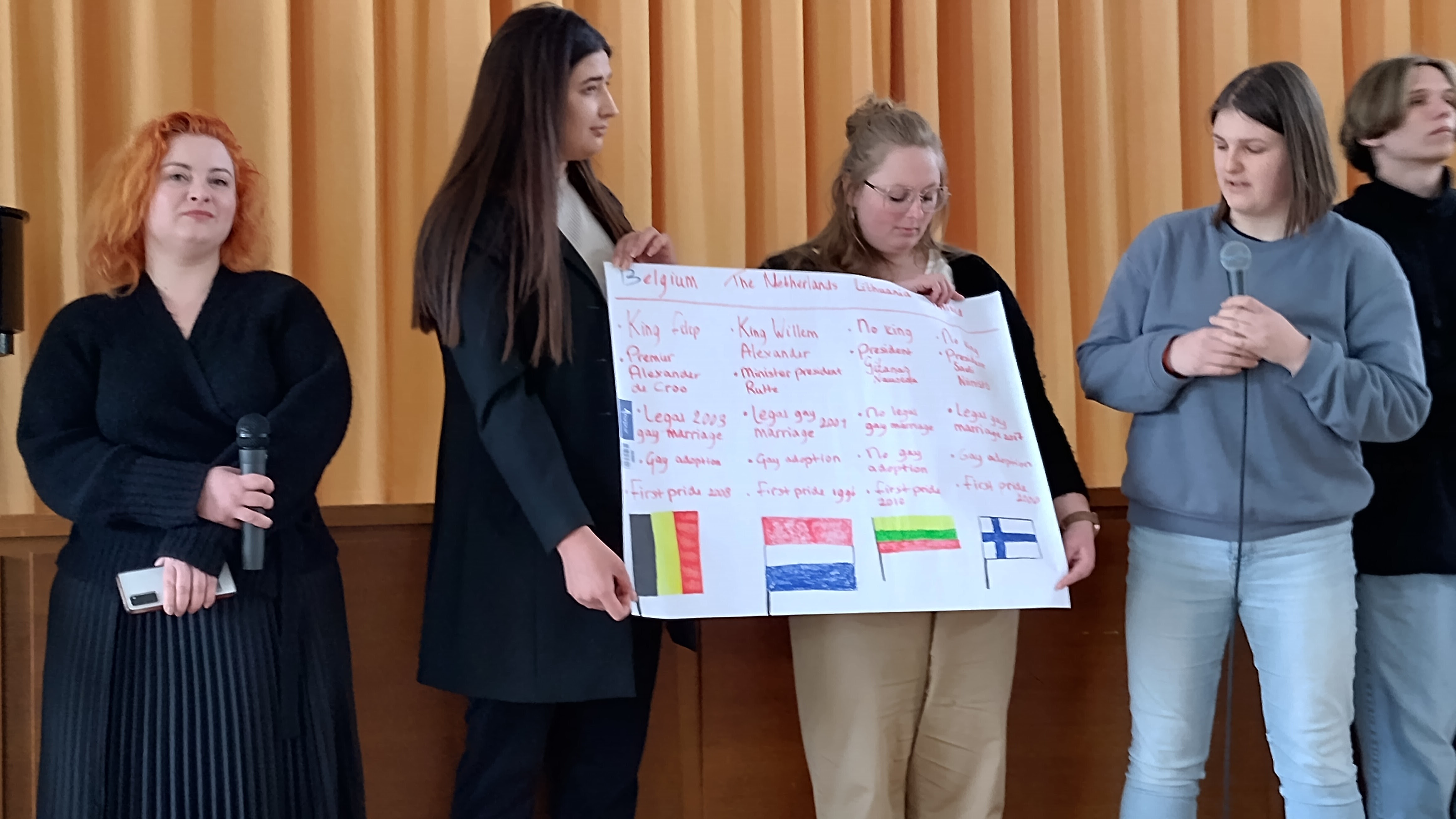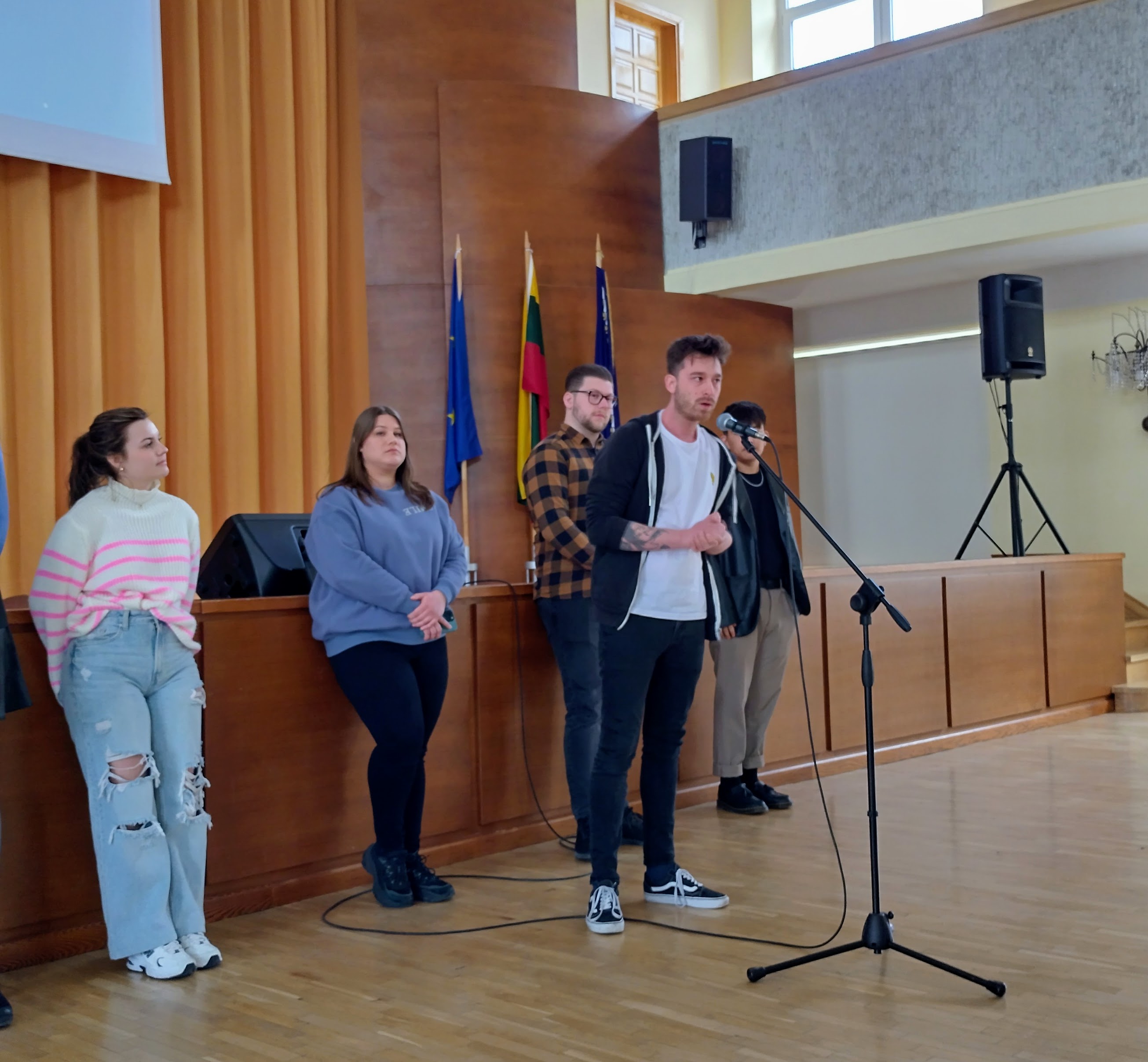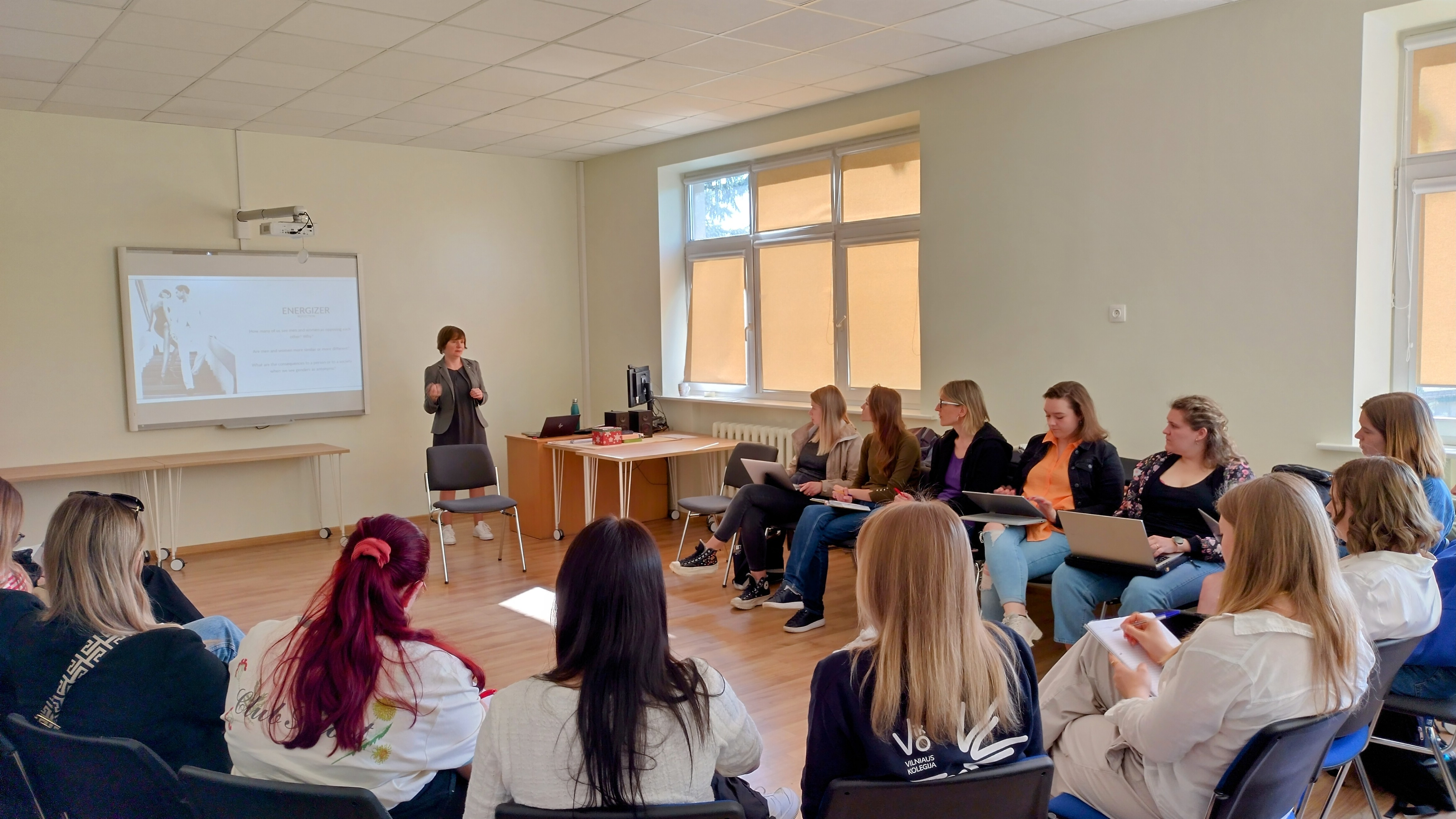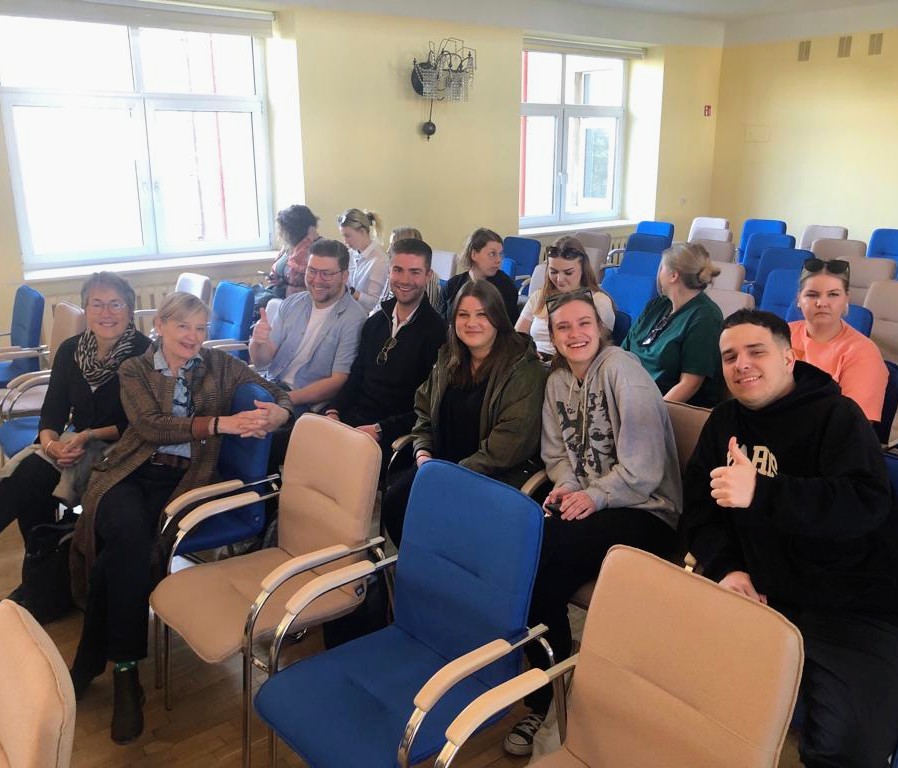Blended Intensive Programme “Parenting in Stressful Situations”
The Erasmus+ Blended Intensive Programme (BIP) “Parenting in Stressful Situations” was organised and implemented at the Faculty of Pedagogy of Vilniaus kolegija (VIKO PDF) from 24-28 April 2023. In total 54 students (including 14 students from the VIKO Faculties of Pedagogy and Health Care) and 18 lecturers from Belgium, the United Kingdom, Malta, the Netherlands, Finland, Sweden and Lithuania participated in the BIP. Vilniaus kolegija organised the BIP together with partners from the International Parent Centred Network (IPCN). The main objective of this network is to empower parents to participate fully and completely in all institutions and organisations related to parenting. This is done by exploring social and political discourses and practices in the field of parenting and by including subjects and themes of inclusive parenting in the curricula of future professionals. The IPCN network consists of higher education institutions training social workers, teachers, educators and health professionals from Belgium, Malta, the Netherlands, Finland, Lithuania, the UK and the Netherlands.
The BIP “Parenting in Stressful Situations” featured workshops and presentations reflecting IPCN’s core mission to enable parents, especially those from marginalised groups, to be seen and heard in society, to help them to solve their problems, and to ensure greater social cohesion and equity. During the seminars, which were led by foreign and VIKO PDF lecturers, students improved their intercultural communication skills, learned tips on how to communicate with refugee families, how to avoid gender, racial and ethnic stereotypes in professional life, discussed the problems of families living in poverty and how to deal with them, how to help parents during the divorce process.
On Wednesday 26 April, the Parliament of the Republic of Lithuania hosted an international scientific conference “Parenting in Stressful Situations”, organised by Vilniaus kolegija and the Committee on Human Rights of the Parliament of the Republic of Lithuania. The conference was part of the BIP. It hosted presentations and sharing of experiences by foreign and Lithuanian researchers. Professor Carmel Borg from the University of Malta identified the problems and challenges in parent-professional relationships after the pandemic. He invited us to look at parents as history-makers and to see parenting as a political space where parents and adult educators can work together to create a future based on a sense of community and solidarity rather than on neo-liberal ideology. Dr Wim Goossens (Zuyd University of Applied Sciences, The Netherlands) gave an overview of the causes of stress experienced by parents, Dr Antoon Cox (Utrecht University, The Netherlands) addressed the specificities and challenges of communicating with parents in a multicultural and multilingual environment, and Dr Barbara Piskur (Zuyd University of Applied Sciences, The Netherlands) examined the situation of parents of disabled children. The conference also addressed parenting issues in marginalised groups. Dr. Laima Vaige from Uppsala University, Faculty of Law (Sweden) delivered a presentation that attracted a lot of attention. The researcher described the legal situation – or rather, the lawless situation – of rainbow families by sensitively sharing the harsh realities of LGBTQ parents’ life in Lithuania. Dr Virginija Klimukienė from Vilnius University and the Lithuanian Prison Department stressed the importance of maintaining the relationship between children and parents during their parents’ imprisonment, as such a relationship has a positive impact on the well-being of the child and the incarcerated parent, and reduces the risk of reoffending. The speaker identified the provision of conditions for communication between imprisoned parents and their children as one of the key factors in preventing recidivism. The topic of parenting of imprisoned parents was continued by Edita Parham, a graduate of Vilniaus kolegija, an employee of the Vilnius Archdiocese Caritas Prisoners’ Consultation Centre for Work with the Families of Prisoners. The graduate shared information on how imprisonment affects the lives of family members of prisoners. According to the speaker, only by “understanding the needs of these families and talking about them publicly can we take the first steps to get them the help they need”. Agnieška Avin, PhD student at the Institute of Sociology and a lecturer at Vilniaus kolegija, drew attention to the criticism that is often directed at Roma parents for their “inability to provide children with proper care, meet their needs and prepare them for the social life in the society”. Deconstructing such societal attitudes, the researcher argued that “the neoliberal approach to parenting as a (un)success of individual choices and decisions is one of the main reasons of not fully understanding the parenthood of disadvantaged families and complexed challenges they face.” According to the speaker, the concepts of “social skills” and “motivation” are not universal personal qualities, they are social constructs. Critical evaluations of such social constructs would allow both social workers and teachers to collaborate more effectively with Roma families.
The conference also included presentations on refugee and migrant parenthood. Jo Reynolds from Nottingham Trent University (UK) discussed restorative practice as a key to integration for refugee and migrant parents. The restoration of community ties in emigration as a stress-reducing factor was also identified and reviewed by Ieva Čičelytė (Vilnius Archdiocese’s Caritas Foreigners Integration Programme) and Rita Virbalienė (Vilniaus kolegija). A case of social assistance system inaction (where a Ukrainian mother of a hyperactive autistic child who had applied for asylum in the Netherlands was not provided with adequate assistance) was presented by Ms Hilde van Schaeren, lecturer at the Zuyd University of Applied Sciences (The Netherlands).
The conference was followed by a discussion “Why is Parenting Empowerment Important?” at the Martynas Mažvydas National Library of Lithuania, where the first publication of the International Parenting Network (IPCN) – a collection of scientific articles “Reimagining Parenthood in Diverse Contexts: a Handbook of Parenting-oriented Methods” was presented.
The BIP week programme included a meeting-discussion between BIP participants and parents. The event was attended by Rasa Račienė, co-founder of Mothers for LGBTQ+ Children, Žilvinas Mišeikis, human rights activist, father of two sons, President of the Association of Personal Assistants, André Loum, a migrant married to a Lithuanian woman and raising a son in Lithuania. The discussion focused on parenting challenges and problems faced by mothers and fathers due to inadequate state policies and insufficient training of professionals to work with different types of parents.
During the BIP week, lecturers from abroad and VIKO lecturers visited the Refugee Reception Centre in Vilnius. At the Centre, they got acquainted with the living conditions of the refugees and talked to the residents of the Centre. Gediminas Pocius, Deputy Director of the Refugee Reception Centre, social workers working at the Centre, and graduates of Vilnius College presented the Centre and talked about their work with refugee families.
On 28 April, the students reflected on the activities of the BIP week. They highlighted the topical themes of the study week: poverty and its impact on families, the situation of LGBTQ+ families, social inequality and its consequences. Students also highlighted the importance of listening and communication skills to achieve greater social cohesion and equality, and of taking personal and professional responsibility to actively work for social change.
According to Seb Fitzbright, a social work student from Nottingham Trent University in the UK, “During this conference, we have been privileged to witness inspirational and hopeful stories and lectures. Through constructive challenges and key reflections, it has been made clear that only constructive conversations will allow us to break out of our echo chambers. Through international dialogue with colleagues, the commonality is the necessity for empathy in a complacent and apathetic society – in which we have to enable and empower effective communication. We must listen, and not just hear. We must see, and not just look. We must love, with no boundaries, borders or conditions. For me, a key message I have taken from this conference is the importance of dialogue, with those who agree and those who don’t – in order to see the unseen and attempt to shine a light on the dark figures of poverty. In listening lies the power, we are the power. Many thanks again for an experience I will never forget.”
Naomi Cornelder, social work student at Zuyd University of Applied Sciences (The Netherlands), says: “It takes reflection upon our deeds, actions, interactions with others to become a competent being, and even more work when you become a social worker. A social worker is defined by their empathy, understanding on intercultural and interpersonal level, therefore we evolve ourselves by participating in events like these, where like-minded individuals come to share our experiences and our thoughts about themes such as a different approach to communication, parental stress, ridiculous legislation that deprives oppressed minorities, such as the Roma and refugees, of their human rights.
In a Neo-liberal world, we, the people, will not thrive due to social adversity and economic strain. We, the people, we, the social workers of the future, are meant to take part in a revolution for all of us. To stand up for our rights, to aim for radical change, and to be the change we want to see in this ominous world where the rich hoard inhumane amounts of money, but do little to nothing for their fellow inhabitants of the planet earth. Human rights should not be discarded for the sake of economic power, as the disparity between rich and poor has never been greater. Radical change is needed to heighten and amplify intercultural and interpersonal communication, an approach that is necessary for these dire times we find ourselves in. Human rights crises are everywhere to be found, not solely limited to Lithuania or the Netherlands. Fascism is on the rise within the trusty borders of Europe and has been expanded to the corners of our beloved planet.
What I take from all of these valuable workshops and lectures, is that we can be the change we would want to see within our social network, community, municipality, province, country, continent or even the world.“
Justina Gaulytė, a student of the social work programme at the Faculty of Pedagogy, Vilniaus kolegija, reflects: “Social work in Lithuania is still kind of new thing. We are still trying to figure our voice, we try to challenge the old concepts which does not serve us anymore, we have our own struggles and debates within the country, but we have noticed this week that we share some similarities as well with other countries. Unfortunately, not all of them were good examples, but there is also a BIG BUT…international academic and practical sharing as this BIP builds the bridges. It allows us to think more globally, it expands our own views on different topics. It helps us grow as future social workers, and who knows maybe the ones who will have an impact of social policies as well. When yesterday during our preparation I heard the speeches other members of my international group prepared I was slightly shocked to be honest. I thought, wow.. how can we as Lithuanians come even close to speeches like this. But then I had another thought. Throughout this week I was constantly experiencing happy thoughts about the future. I had a hope that we will grow as much as other countries did. I also see the progress we have already made and that we are going to the right direction. This week more than anything was inspiring despite the complex topics we have explored. It gave us hope.
And there are more things we will take to our practise. First of all, communication. It’s such a powerful tool. The miscommunication can lead to unwanted results, but as we learned, there are tools we can use at least to start the conversation, to make an effort. Let’s use it. Let’s stop avoiding things we don’t understand. Language barrier should not create instances where we push people away. Let’s build those bridges.
And then it comes to Parenthood. The Topic we were talking about this week. We see it as an umbrella opening, where every top section of it needs to be taken into account in order to understand it fully. Diversity, gender, poverty, emotions in crisis situations, migration, LGBTQ+, and all other possible stressful situations parents may find themselves.
All this week where was one word which probably is being told the most. I would say the KEY word for us as social workers. The word which can build a strong foundation to all the work we are going to do. And if we all can make it our core value we will see that listening is power and we have that power.”
